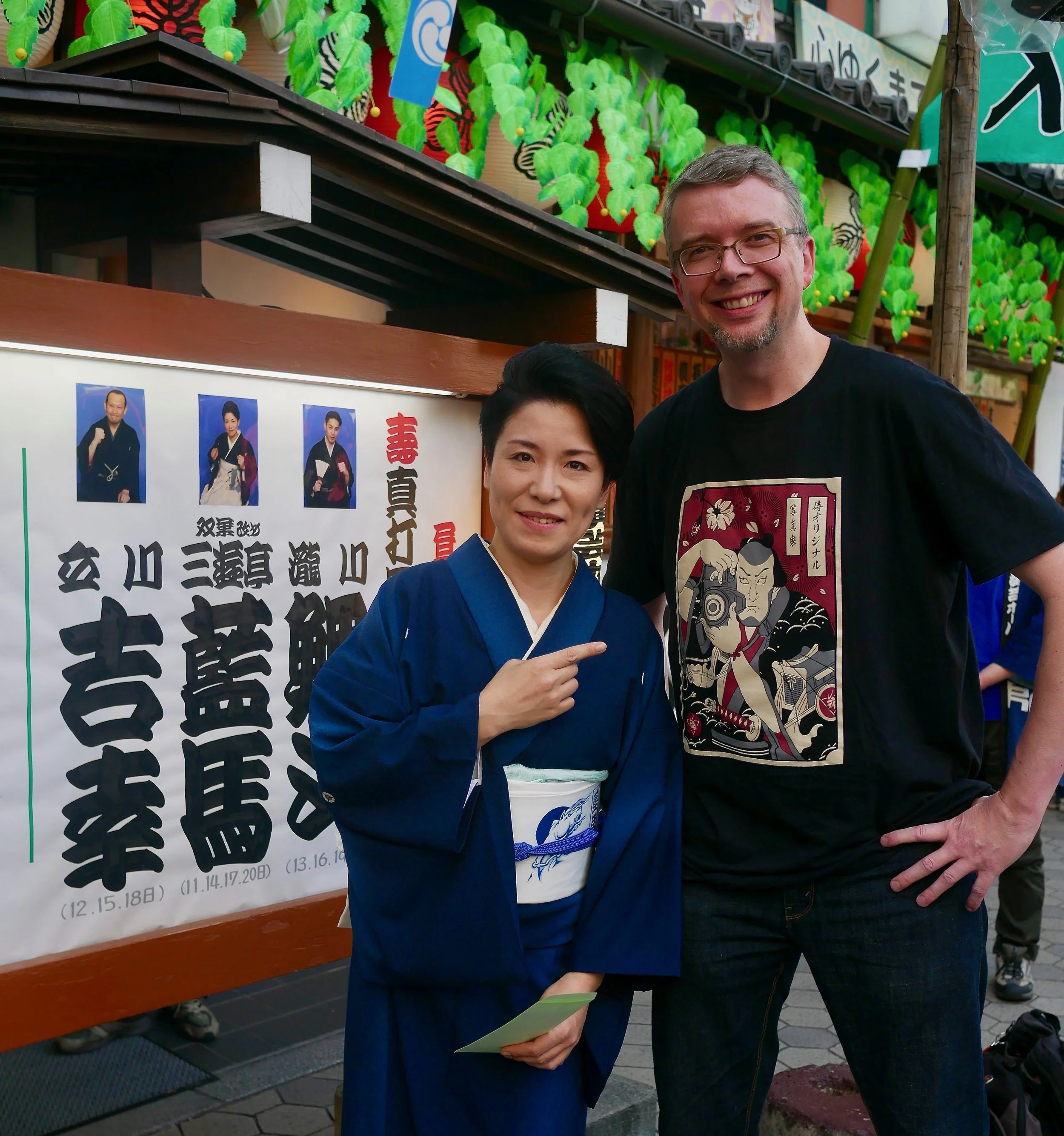Entertainment World Rocked by Comedians Linked to Criminal Syndicate Party Performance
Newspaper headlines detail the scandal and suspensions of several well-known comedians. The middle-front newspaper has the names of two major comedians with the word “uso” (lie) in big yellow text.
What started out with the firing of comedian Irie Shin’ya of the manzai duo Karateka due to his hand in performing and inviting other well-known comedians to perform at a 2014 party organized by a criminal syndicate has snowballed into a full-blown scandal that has resulted in harsh punishments for the 13 comedians involved. In a recent issue of the magazine FRIDAY, photos and details emerged to show that 11 comedians from comedy agency Yoshitmoto Kogyo and 2 from Watanabe Pro were recruited by fellow comedian Irie to entertain at a 2014 end-of-the-year party for a criminal group. The job was accepted by the comedians without going through their agencies which certainly would not have allowed affiliating with a criminal organization had they known. This pratice of taking a job without going through one’s agency is called “yami eigyou” (闇営業), which could be translated into “dark business”.
Before the scandal became public Yoshimoto Kogyo acted quickly and fired Irie from the agency for his role in roping in the acts. Then, after the article came out, the most popular comedians named, Miyasako Hiroyuki of the duo Ameagari Kesshitai and Tamura Ryo of the duo London Boots Ichigo Nigo, denied knowing that the job was for a criminal group and stated that they did not receive any payment for their work at the time. However, an investigation revealed that the two had lied about receiving monetary payments. As a result of doing business with a criminal organization, Miyasako, Tamura and the other comedians were suspended indefinitely. This is perhaps the largest scandal, at least in the number of comedians involved, in recent history and certainly the biggest since popular comedian Shimada Shinsuke was thrown out of the comedy world for his close ties to organized crime in 2011. After that scandal, Yoshimoto Kogyo (which had connections to the crime world in the past) worked hard with the police to cut off any possible ties with criminal elements.
The scandal will perhaps have an even bigger impact of television programming in the upcoming months. In Japan, when a celebrity is charged in a crime or causes some sort of scandal all the creative projects the person is involved with are usually pulled from the public eye. Miyasako is, along with his duo partner Hotoharu Toru, host the long-running, popular comedy talk show “Ametalk”. It will be difficult to cut all the scenes that include him and the suspension might even result in the cancellation of the program. When Shimada Shinsuke was fired from his show “Gyouretsu ga Dekiru Houritsu Soudanjou” he was replaced with a series of hosts but it is harder to imagine such an action working with “Ametalk”, which derives its name from Miyasako’s comedy duo Ameragari Kesshitai.
Other comedians in the group that are less-known may suffer greater financially as it is speculated that Miyasako may be able to make a comeback after a while away from the spotlight. Personally, I feel the worst for Fukushima Yoshinari of the duo Gatorittochuu. After many years of struggling for attention Fukushima had finally started to breakthrough with successful appearances doing hilarious impersonations on mainstream television programs. It’s hard to tell if the temptation of a large payday at the time (rumored to be around $10,000 per comedian) was too much to deny (especially for a lesser known act) or if he and other comedians truly did not know the nature of their employers. It is also possible that the younger comedians were not in a position to say “no” to their sempai (senior) comedians with the importance that is placed on protecting the hierarchy in Japan.
Perhaps the most brutal comments on the scandal were those made by Tamura Ryo, the comedy partner of Tamura Atsushi (not related by blood, by the way). Here is a rough translation of a part of his statement that was particularly harsh.
“When I heard from Ryo that he actually did get paid I was shocked. Even if you didn’t know the nature of the group, to take part in a party organized by a group of fraudsters, receive money that was stolen from deceived victims and not even return the money?! How can you accept that as normal?! I scorn you!”
It should be noted that the group that hired the comedians was known for “furikome sagi” (振り込め詐欺). This is a crime in which the group would often call victims (usually elderly) and convince the victim to send money via an ATM by pretending to be the son of the victim in a sudden, desperate need for cash (because of an car accident, scandal, or other reason).
The connection between the crime and the comedy world is not limited to Japan. When Las Vegas and many other clubs and theaters were run by the mafia in the United States in the 50s and 60s it was basically impossible for comedians looking to make a living to avoid associating with criminals. (For more on this and a great history of comedy in the US check out “The Comedians: Drunks, Thieves, Scoundrels and the History of American Comedy”)





